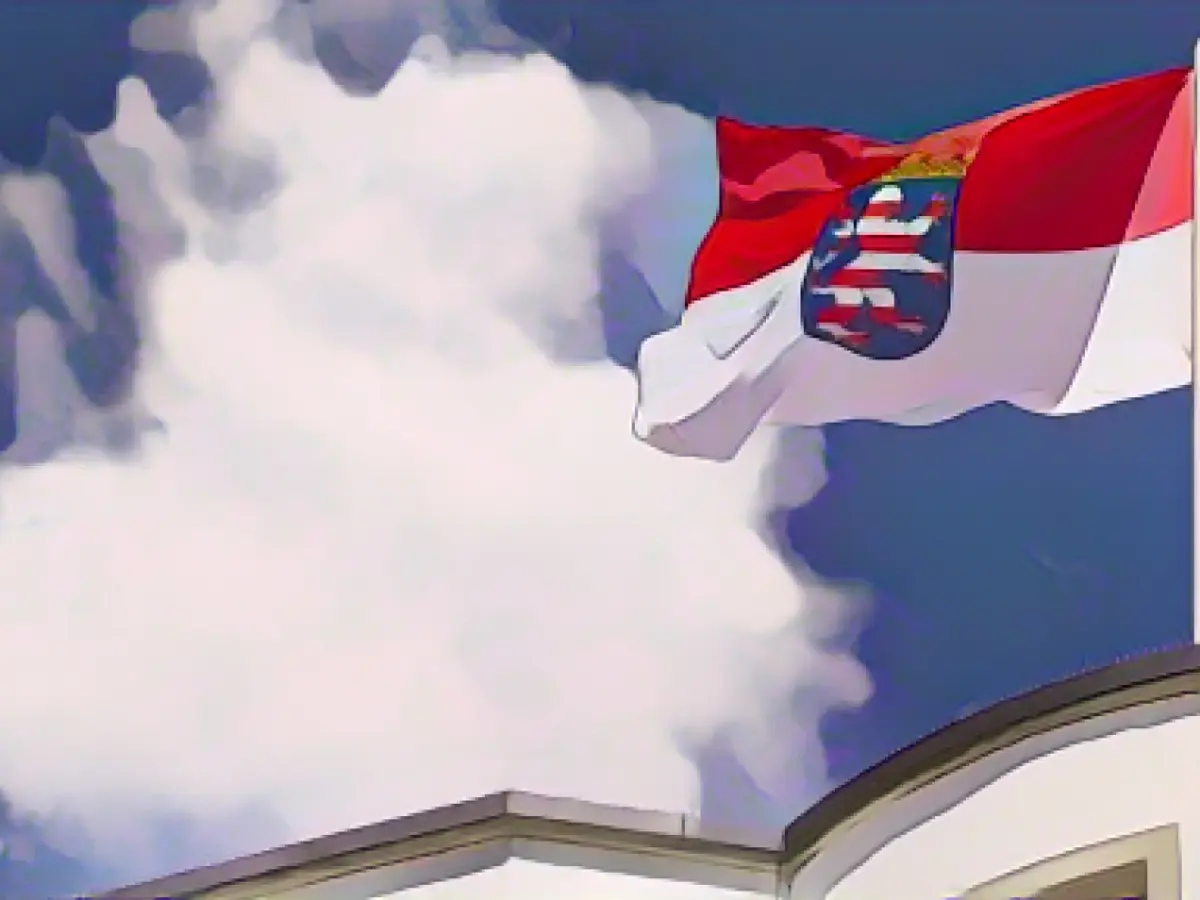CDU and SPD on a Roll: Assured in Coalition Talks
In Hesse, the CDU and SPD are quite smitten with the progress of their coalition negotiations. Manfred Pentz, the CDU's General Secretary, opined on Thursday in Wiesbaden that the duo was on track to forge a new bond, with a strengthened trust bridging the troubled times. This prospect marks the emergence of the first "Christian-social" government alliance in Hesse in 70 years.
The CDU and SPD have held substantial talks with almost 200 participants in 15 working groups and main rounds involving high-ranking figures. Pentz considered these sessions as important stepping stones towards the summit cross. SPD counterpart, Christoph Degen, echoed his sentiments, implying a strong potential for a successful conclusion.
According to Degen, there have been more overlaps in terms of content than initially anticipated. The CDU, as the predominant victor in the elections, has consistently maintained an egalitarian approach towards the comparatively weaker SPD, treating them with respect rather than condescension.
The two Generals Secretary were on familiar terms in front of journalists, displaying an unprecedented openness. However, they refrained from addressing potential sticking points or debatable topics, curbing speculation.
On December 16, the two parties have set a deadline for finalizing the black-red negotiations. The CDU will hold a state committee in Frankfurt, while the SPD will gather for a party conference in Groß-Umstadt. The coalition partners from the CDU-CSU and the SPD aim to ink the new coalition agreement prior to Christmas.
Consequently, the 21st Hessian state parliament will convene in Wiesbaden on January 18. Hesse has been presided over by a black-green government for a decade now. The CDU emerged victorious in the recent state elections by a significant margin, enabling them to comfortably choose between the Greens and the SPD as coalition partners. Ultimately, the CDU opted for a black-red government alliance.
The joint key issues paper outlines the coalition partners' shared commitments to restricting migration, providing more jobs for the police, and offering financial aid for the first owner-occupied home. Additionally, the coalition pledges to establish a separate ministry for agriculture and forestry, viticulture, hunting, and homeland.
The coalition talks have resulted in a document of approximately 200 to 250 pages. Open issues will now be clarified in the main negotiating group, as confirmed by both Secretaries-General. The two General Secretaries highlighted that prior disagreements from the election campaign have been ironed out, thanks to open discussions.
During the election, an SPD campaign video aroused controversy. The nearly 90-second video depicted potential cooperation between the CDU and the AfD and provoked indignation. The SPD opted to withdraw the video in response.
Mathias Wagner, the Greens' parliamentary group leader in the state parliament, deemed the CDU and SPD's statements on the status of the coalition negotiations as "empty talk". Both parties, he argued, have failed to provide any concrete solutions to the pressing challenges at hand.
René Rock, the FDP parliamentary group leader, claimed that it remains premature to assess the new coalition's impact. Only time will tell how the partnership with the Greens as a new opposition member in the state parliament will evolve. Democratic parliamentary groups, according to Rock, should theoretically be capable of cooperating based on content.
Source:
Enrichment Data
The current state of coalition negotiations between the CDU and SPD in Hesse, Germany, reflects broader national trends and the unique political landscape in Hesse. Here are the primary factors at play:
- Coalition Formation:
- Predictable Outcome: The Christian Democratic Union (CDU) is likely to play a significant role in forming the next government, given their historical dominance in Hesse. However, the precise configuration of the coalition remains uncertain.
- Coalition Scenarios:
- GroKo (Grand Coalition): A classic German government arrangement involving the CDU and the Social Democratic Party (SPD) is a possibility. However, shifting the CDU under Friedrich Merz to the right complicates reaching a compromise with the SPD.
- Kiwi Coalition: An alliance between the CDU and the Greens is a plausible scenario, which could be affected by commonalities on foreign policy and defense spending but is bogged down by significant variations on migration policies.
- Tripartite Coalition: Given the political fragmentation, a three-way alliance comprising the CDU, SPD, and either the Free Democratic Party (FDP) or the Greens is also possible, though it is viewed skeptically due to deep-seated divisions between the parties.
- Migration and Integration Policies:
- Migration Restrictions: The CDU's promise to shut down Germany's borders immediately is controversial. The Greens disagree with such measures, potentially complicating the coalition negotiations.
- AfD Influence: The Alternative for Germany (AfD) boasts significant support, primarily in former East Germany, but is considered an unacceptable coalition partner due to its far-right stance.
- Debt Brake and Fiscal Policy:
- Debt Brake Reform: Future coalition negotiations will influence the significance of the debt brake. The CDU advocates preserving the debt brake in its current form but shows flexibility in the negotiations. Reforming the debt brake could be achievable if the coalition partners agree to revise the rules governing it.
- Post-Election Reconciliation:
- SPD Reorganization: A post-election reconciliation could trigger a reshuffle within the SPD. Defence Minister Boris Pistorius and party leader Lars Klingbeil are anticipated to ascend to higher positions, potentially influencing the coalition dynamics.
During these negotiations, the parties will concentrate on finding common ground on key policies, such as migration, fiscal management, and the role of the debt brake. Successful coalition negotiations can be facilitated by learning from the past, such as Boris Rhein's role as a prime minister in regional elections and his ability to maneuver between the SPD and the Greens. However, the intricate negotiations, below-the-surface political challenges, and the potential for intra-party friction make the coalition formation process challenging and uncertain.








